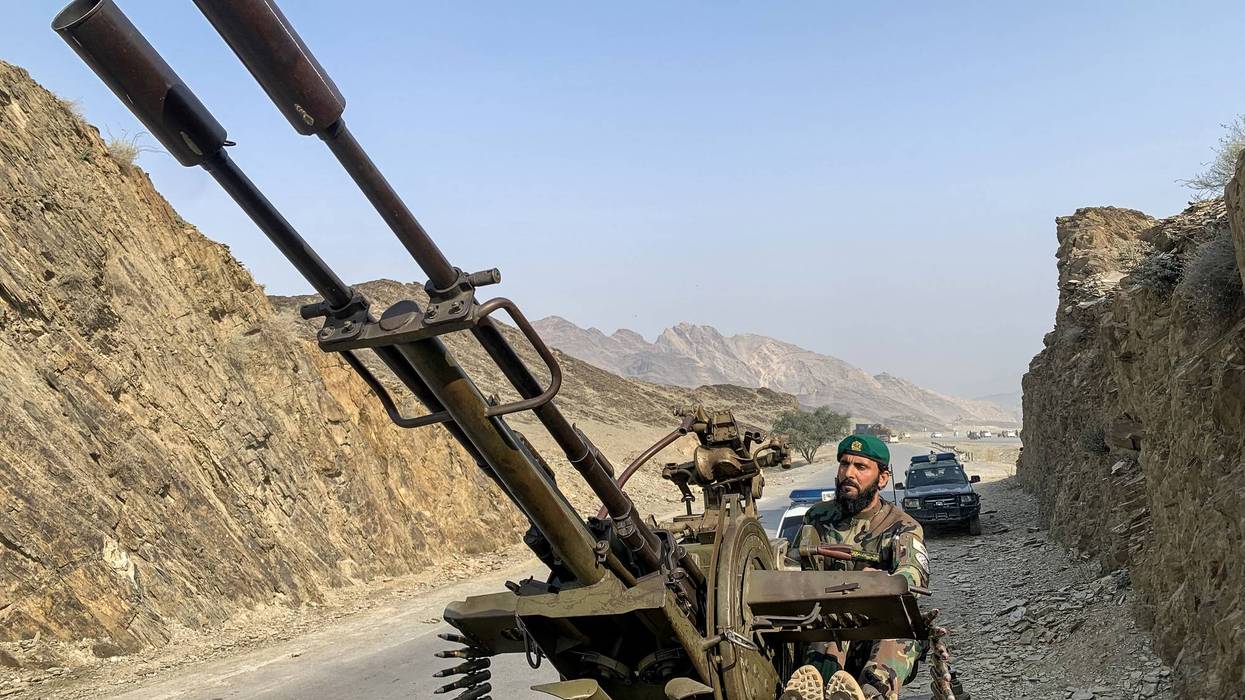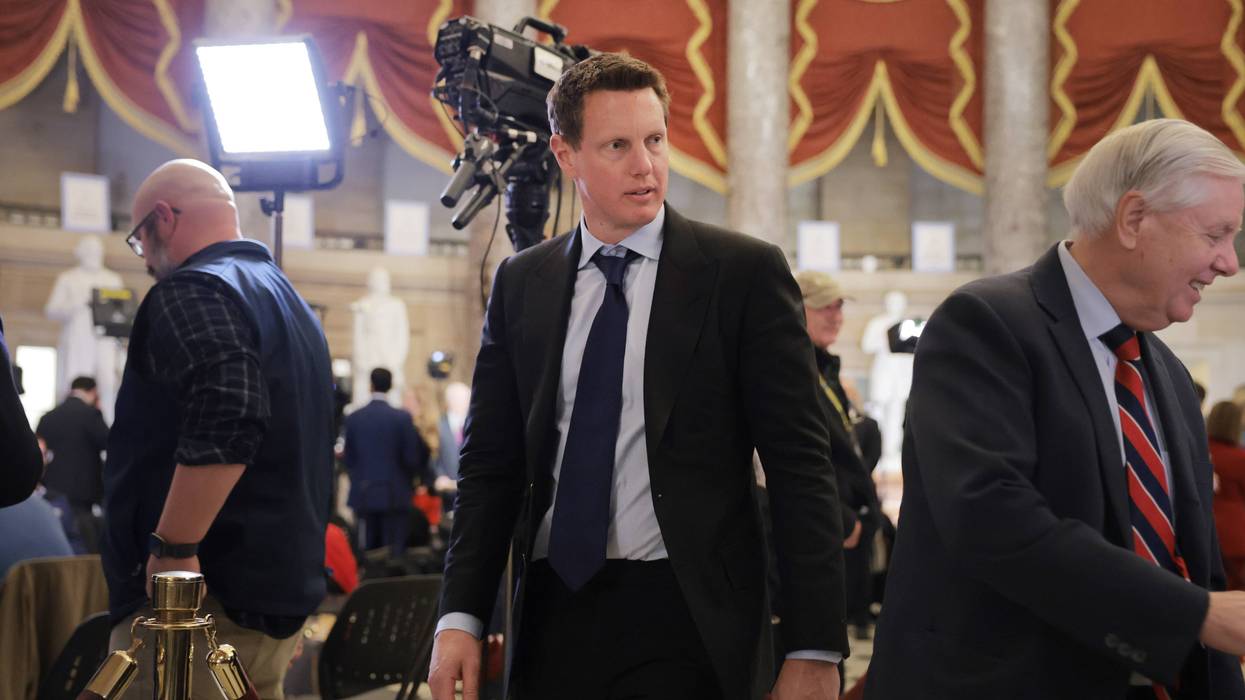July, 14 2025, 02:43pm EDT

House Interior Appropriations Bill Contains Devastating Attacks on Wildlife
Defenders of Wildlife strongly condemns the House Appropriations Committee’s proposed Interior and Environment spending bill for Fiscal Year 2026 which includes numerous poison pill policy riders that undermine the Endangered Species Act and protections for individual species. The bill also includes additional riders that diminish protections for America’s wildlife, public lands and waters.
“This budget proposal shows yet again the extremes to which anti-wildlife members of Congress will go to sacrifice endangered species,” said Robert Dewey, vice president of government relations at Defenders of Wildlife. “The bill is loaded with riders that attack the Endangered Species Act and would put some of America’s most iconic species, including the grizzly bear and wolverine, at serious risk of extinction. By blocking protections for public lands while also providing short-sighted lease sales for the benefit of oil and gas corporations, the bill and all who support it are compromising the crucial habitats, outdoor recreation areas and natural resources that Americans and wildlife rely on.”
Of its most egregious provisions, the bill slashes funding for listing threatened and endangered species under the Endangered Species Act by two-thirds and includes poison-pill riders that would:
- Block all funding for listing the greater sage-grouse and for implementing the new range wide plans to conserve the species.
- Delist the gray wolf.
- Delist the Greater Yellowstone Ecosystem grizzly bear population.
- Block funding for protecting the wolverine.
- Block funding for protecting the northern long-eared bat.
- Block funding for protecting the lesser prairie-chicken.
- Block funding for protecting captive fish listed under the ESA, like sturgeon.
- Block funding for reintroducing grizzly bears to the North Cascades Ecosystem.
- Block funding for reintroducing grizzly bears to the Bitterroot ecosystem.
- Block Biden-era ESA rules.
- Block funding for the protection of seven freshwater mussel species in Texas.
- Reissue a harmful rule overturning legal precedent set by the “Cottonwood” court case.
- Block the BLM Conservation and Landscape Health Rule, which puts conserving wildlife and ecosystems on par with other uses of public lands.
- Block funding for reintroduction of American bison on the Charles M. Russell National Wildlife Refuge.
- Block funding for the Muleshoe National Wildlife Refuge land protection plan.
- Promote continued expansion of offshore drilling in the Gulf of Mexico and Alaska.
- Mandate issuing at least four onshore oil and gas lease sales in any state where there is land available, including Wyoming, New Mexico, Colorado, Utah, Montana, North Dakota, Oklahoma, Nevada and Alaska.
Defenders of Wildlife is the premier U.S.-based national conservation organization dedicated to the protection and restoration of imperiled species and their habitats in North America.
(917) 363-4149LATEST NEWS
Hundreds Reportedly Killed as 'Open War' Breaks Out Between Pakistan and Afghanistan
A spokesperson for the head of the United Nations implored both sides to "seek to resolve any differences through diplomacy."
Feb 27, 2026
This is a developing story... Please check back for updates...
Pakistan's defense minister said Friday that his country and Afghanistan are in an "open war" after Afghan forces attacked Pakistani border troops in what Kabul characterized as retaliation for recent airstrikes.
Pakistan, which has nuclear weapons, responded to the attack on its border troops with airstrikes on at least three Afghan provinces early Friday, reportedly killing more than 220 people. A spokesperson for Afghanistan's Taliban government said its forces killed dozens of Pakistanis in Thursday's onslaught.
Al Jazeera’s Kamal Hyder, reporting from Pakistan on Friday, said that "we were able to see and hear outgoing fire from the Pakistani side that appears to be heavy artillery, which means that the clashes are still continuing."
Stéphane Dujarric, a spokesperson for United Nations Secretary-General António Guterres, said the UN chief is alarmed by the escalating hostilities and urged the "parties to continue to seek to resolve any differences through diplomacy."
Keep ReadingShow Less
'Antitrust Disaster': Son of Billionaire Trump Donor Poised to Take Over Warner Bros.
"A handful of Trump-aligned billionaires are trying to seize control of what you watch and charge you whatever price they want."
Feb 27, 2026
Netflix announced Thursday that it would not continue its effort to acquire Warner Bros. Discovery, paving the way for Paramount Skydance—a company controlled by the son of billionaire Trump donor Larry Ellison—to take over the media giant after a lengthy bidding war.
The news came after Netflix CEO Ted Sarandos visited the White House and met with members of President Donald Trump's staff, raising suspicions about the role the administration may have played in pushing the streaming giant to drop its bid for Warner Bros. and cede the fight to David Ellison's Paramount. Along with other major media properties, Warner Bros. owns CNN, a frequent target of Trump's ire.
"What did Trump officials tell the Netflix CEO today at the White House?" asked Sen. Elizabeth Warren (D-Mass.), calling the potential Paramount-Warner Bros. merger "an antitrust disaster threatening higher prices and fewer choices for American families."
"A handful of Trump-aligned billionaires are trying to seize control of what you watch and charge you whatever price they want," Warren added. "With the cloud of corruption looming over Trump’s Department of Justice, it’ll be up to the American people to speak up and state attorneys general to enforce the law."
In a statement that appears to have stunned Hollywood, Netflix announced Thursday that it would not raise its offer for Warner Bros. after that company's board deemed Paramount's latest offer of $111 billion "superior." Netflix said it determined the pursuit of Warner Bros. was "no longer financially attractive."
"Ellison will readily throw the First Amendment, CNN’s reporters, and HBO’s filmmakers under the bus if they stand in the way of expanding his corporate empire and fattening his pockets."
Ellison, for his part, said he was "pleased" that the Warner Bros. board "affirmed the superior value of our offer, which delivers to WBD shareholders superior value, certainty, and speed to closing."
The proposed Paramount-Warner Bros. merger still must receive regulatory approval in the US and Europe. Critics have voiced concerns about the legitimacy of a US Justice Department review given the recent ouster of antitrust chief Gail Slater.
State attorneys general could also intervene. Rob Bonta, the attorney general of California, emphasized in a statement that "Paramount/Warner Bros is not a done deal."
"These two Hollywood titans have not cleared regulatory scrutiny—the California Department of Justice has an open investigation, and we intend to be vigorous in our review," said Bonta.
On top of antitrust concerns, critics of the potential Paramount-Warner Bros. merger warned it would be a disaster for journalism and free expression. David Ellison acquired CBS News last year through the Paramount-Skydance merger approved by the Trump administration, and he is now poised to take over CNN, HBO, and other major platforms.
"Ellison has already shown his cards," said Seth Stern, chief of advocacy at the Freedom of the Press Foundation. "When the Trump administration unconstitutionally demanded editorial concessions from Ellison’s Skydance in exchange for government approval of its takeover of Paramount and CBS News, he obliged, even appointing a Trump loyalist as a so-called ‘bias ombudsman.’ CBS has since repeatedly censored journalists or altered its coverage to please Trump and his allies."
"There is no reason to believe that this proven capitulator will behave any differently this time around—in fact, he’s already reportedly promised Trump ‘sweeping changes’ at CNN, including firing people Trump dislikes," Stern said. "Ellison will readily throw the First Amendment, CNN’s reporters, and HBO’s filmmakers under the bus if they stand in the way of expanding his corporate empire and fattening his pockets."
"Lawmakers, state attorneys general, and anyone else in a position to intervene should make clear that they will not stand by as the Trump administration abuses its power to unconstitutionally extract content-based concessions from news companies," he added.
Keep ReadingShow Less
Anthropic CEO 'Cannot in Good Conscience Accede' to Pentagon's AI Demand
"Anthropic and Dario deserve credit for standing up for two very basic and obvious principles: no mass surveillance and no autonomous killer robots," said one progressive commentator.
Feb 26, 2026
Defense Secretary Pete Hegseth gave Anthropic until Friday evening to agree to let the Pentagon use the company's artificial intelligence technology however it wants, or else. Roughly 24 hours ahead of the deadline, CEO Dario Amodei announced that "we cannot in good conscience accede to their request," and reiterated opposition to enabling autonomous weapons or surveillance of US citizens.
Anthropic's Claude was the first AI model allowed to handle classified US military data. While the Department of Defense (DOD) has now signed an agreement with Elon Musk's xAI and "is getting close to making a deal with Google," as the New York Times reported Monday, Hegseth demanded "unfettered" access to Claude during a Tuesday meeting with Amodei.
Hegseth threatened to declare the Anthropic a "supply chain risk," effectively blacklisting it for military use and ending its current contract, or invoke the Defense Production Act, which would force Anthropic to tailor the product to the DOD’s needs, if Amodei refused to drop the company's guardrails.
The CEO responded publicly with a Thursday blog post. Using President Donald Trump's preferred name for the Pentagon, he wrote that "Anthropic understands that the Department of War, not private companies, makes military decisions. We have never raised objections to particular military operations nor attempted to limit use of our technology in an ad hoc manner."
"However, in a narrow set of cases, we believe AI can undermine, rather than defend, democratic values. Some uses are also simply outside the bounds of what today's technology can safely and reliably do," Amodei continued. He explained the company's position that "using these systems for mass domestic surveillance is incompatible with democratic values."
"AI-driven mass surveillance presents serious, novel risks to our fundamental liberties. To the extent that such surveillance is currently legal, this is only because the law has not yet caught up with the rapidly growing capabilities of AI," he wrote. "For example, under current law, the government can purchase detailed records of Americans' movements, web browsing, and associations from public sources without obtaining a warrant, a practice the Intelligence Community has acknowledged raises privacy concerns, and that has generated bipartisan opposition in Congress. Powerful AI makes it possible to assemble this scattered, individually innocuous data into a comprehensive picture of any person's life—automatically and at massive scale."
The CEO also argued that "frontier AI systems are simply not reliable enough to power fully autonomous weapons. We will not knowingly provide a product that puts America's warfighters and civilians at risk." He noted that Anthropic offered to work directly with the department on research and development to "improve the reliability of these systems, but they have not accepted this offer."
Amodei concluded by expressing hope that the Pentagon revises its position, writing that "our strong preference is to continue to serve the department and our warfighters—with our two requested safeguards in place. Should the department choose to offboard Anthropic, we will work to enable a smooth transition to another provider, avoiding any disruption to ongoing military planning, operations, or other critical missions."
Amodei's blog post followed CBS News reporting earlier Thursday that "Pentagon officials on Wednesday night sent Anthropic their best and final offer in negotiations for use of the company's artificial intelligence technology."
It also came just hours after Pentagon spokesperson Sean Parnell responded to a related post from a Google scientist on Musk's social media platform X. The DOD official claimed that "the Department of War has no interest in using AI to conduct mass surveillance of Americans (which is illegal) nor do we want to use AI to develop autonomous weapons that operate without human involvement. This narrative is fake and being peddled by leftists in the media."
"Here's what we're asking: Allow the Pentagon to use Anthropic's model for all lawful purposes. This is a simple, commonsense request that will prevent Anthropic from jeopardizing critical military operations and potentially putting our warfighters at risk. We will not let ANY company dictate the terms regarding how we make operational decisions," Parnell added, noting the Friday deadline and the threat to "terminate our partnership with Anthropic and deem them a supply chain risk."
While Amodei and observers await the Pentagon's next move, several Anthropic employees, other tech experts, and critics of the Trump administration praised the CEO for "standing on principle" and choosing "war with the Department of War."
"Anthropic and Dario deserve credit for standing up for two very basic and obvious principles: no mass surveillance and no autonomous killer robots," said progressive commentator Krystal Ball. "Perhaps this is a low bar but it isn’t clear any of the other leading AI companies would put principle above profits in ANY scenario. The Pentagon is sure to make Anthropic pay for daring to defy them."
Keep ReadingShow Less
Most Popular


